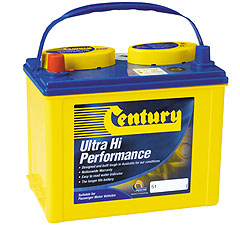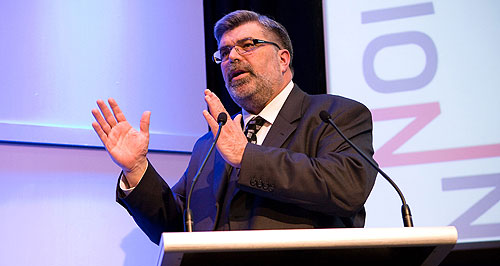News - General NewsEco battery gets jump start from CanberraTechnology highway: Industry minister Kim Carr has revealed a new 'roadmap' that he says points the way for the Australian motor industry. Big grant for Century Yuasa battery project as Carr defends green car fund10 Aug 2010 By IAN PORTER and TERRY MARTIN BRISBANE-based battery manufacturer Century Yuasa is set to start production of a new lead-acid starter battery that it claims can cut fuel consumption by up to two per cent. The company has received a $996,000 grant from the Government’s Green Car Innovation Fund (GCIF) to help move the new design into production. The grant was announced last week by federal innovation, industry, science and research minister Kim Carr in a speech to the annual conference of the Federation of Automotive Products Manufacturers (FAPM) on the Gold Coast. Senator Carr later told GoAuto the new Century Yuasa battery would recharge faster than regular starter batteries, reducing the load on the car’s engine and, therefore, saving fuel. Senator Carr said the grant was made under the normal GCIF terms, which means the recipient company has to contribute three times or more money of its own to the project. This means the Century Yuasa commitment is at least $3 million. Using Century Yuasa’s current market share forecasts, it has been estimated the battery could save as much as 86 million litres of fuel by 2016, equating to a saving of 124,000 tonnes of carbon dioxide.  Company spokesman Allan Woodford said the fuel-saving benefits were realised when the new battery was used in conjunction with a “smart charging” system in the car’s electrical system. Company spokesman Allan Woodford said the fuel-saving benefits were realised when the new battery was used in conjunction with a “smart charging” system in the car’s electrical system.The battery will be made at Century Yuasa’s Carole Park, Brisbane, plant, which makes more than a million batteries a year and employs 300 people. A further 300 people are employed around Century Yuasa’s distribution network. The grant to Century Yuasa is the latest in a series of small grants designed to help component manufacturers adopt leading edge technology and stay viable in a competitive environment, Senator Carr said. GoAuto has learned that only a small number of GCIF applications have been received for the $1.3 billion scheme, largely because it has excluded companies – particularly small component manufacturers – who could not afford start-up investment costs, such as the three-to-one restrictions. In response, Senator Carr told GoAuto that several new grants were in the pipeline and that the government had relaxed the investment rules. “It doesn’t have to be three-to-one. We are prepared to come lower than that, but it still has to be real money. We want some skin in the game, genuine skin in the game,” he said. “There’s some flexibility on the three-to-one because we understand the difficulties in current economic circumstances. But everyone must invest ... this is about joint co-investment and that means there’s got to be serious real money from the proponents. “There are a few more (grants) coming through the system. But that doesn’t give you the full picture. “There’s no doubt that banks have been very reluctant to lend to the industry. There is no doubt that finance and capital is hard to come by, and that has had an effect on investment. “But given the state of the industry, it is a true measure of its success that there has been so much investment already. In terms of the commitments that we have made so far – and I say to you, there are very significant program initiatives in the pipeline, awaiting approval processes to be concluded.” To date, the GCIF has delivered a $35 million grant to Toyota, announced in June 2008, to bring production of the Camry Hybrid to Australia, plus a $149 million grant to Holden, announced in December 2008, to localise the Cruze small car. The government has also provided Ford Australia with a $42 million grant to Ford, announced in July 2009, to fit EcoBoost engine technology to the Falcon. In March this year, Orbital Corporation was granted $440,000 to help develop its FlexDI engine management and combustion system, to be tested on engines and in vehicles for Changan Automobile. In April, the government granted $2.4 million to SMR Automotive for the development of environmentally friendly vehicle mirrors. SMR is based in South Australia and is one of the world’s largest manufacturers of rear vision mirrors. It was formerly known as Visiocorp, Schefenacker and, originally, Britax.  Read more |
Click to shareGeneral News articlesResearch General News Motor industry news |

















Facebook Twitter Instagram